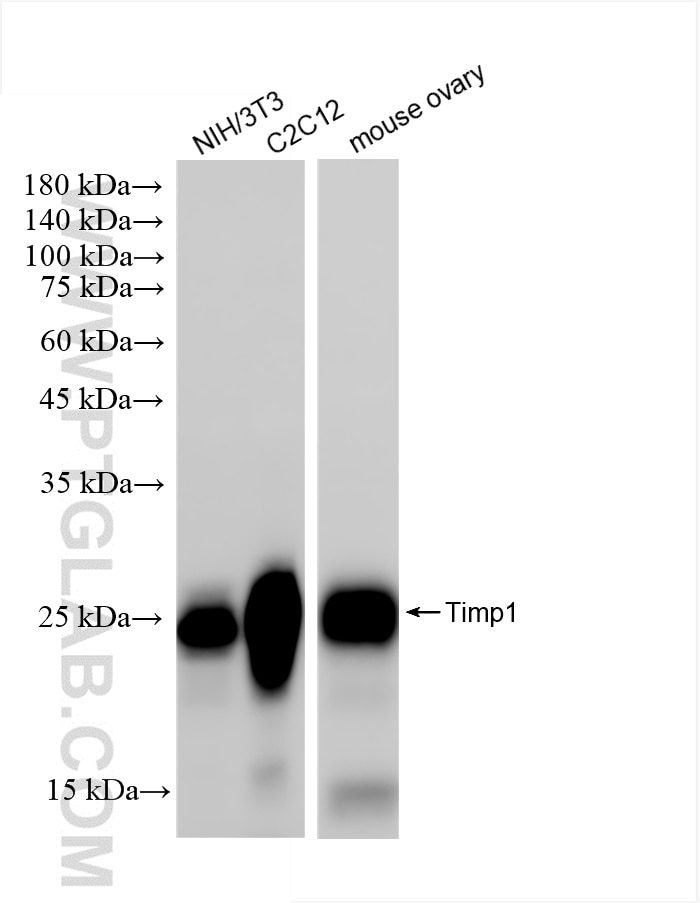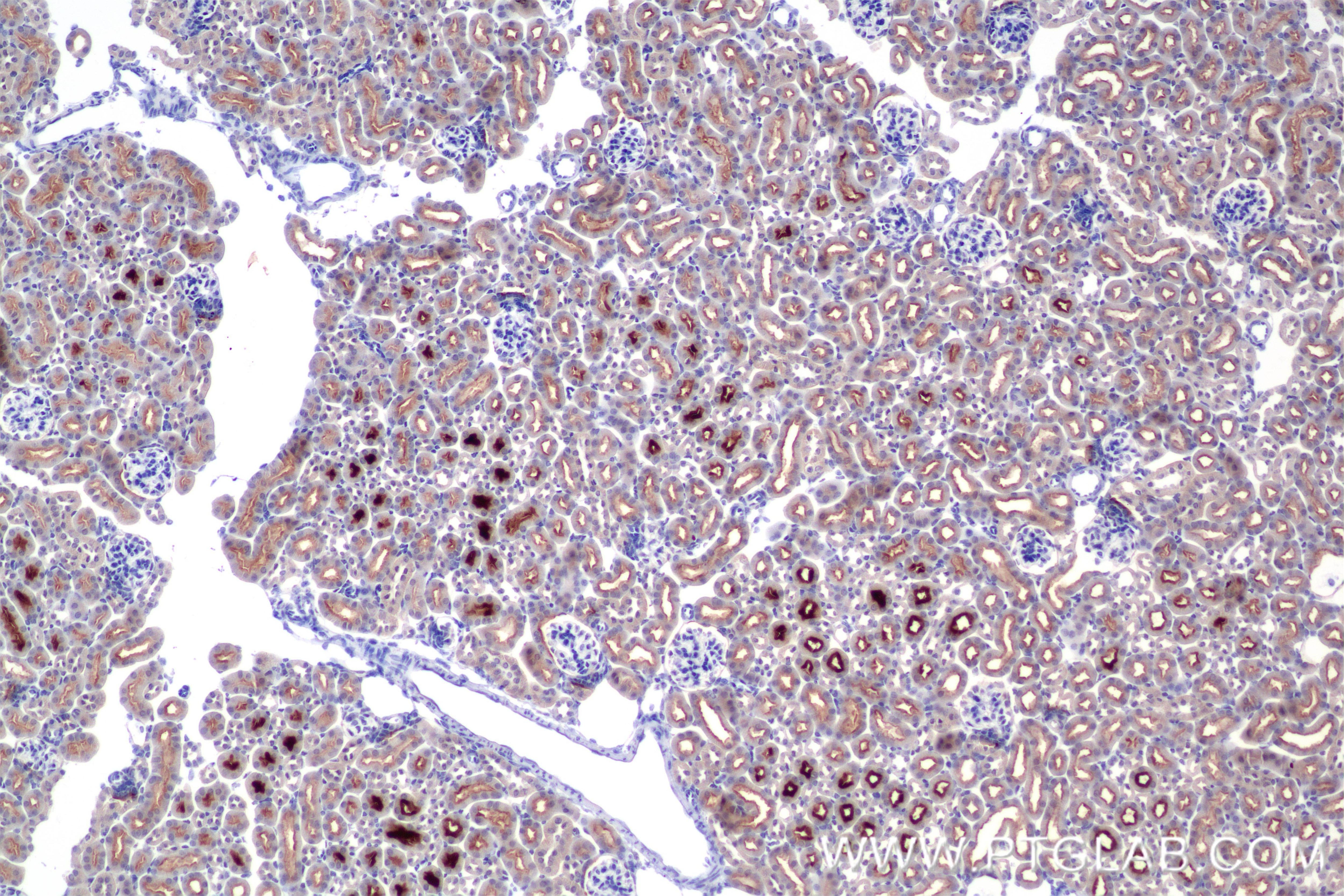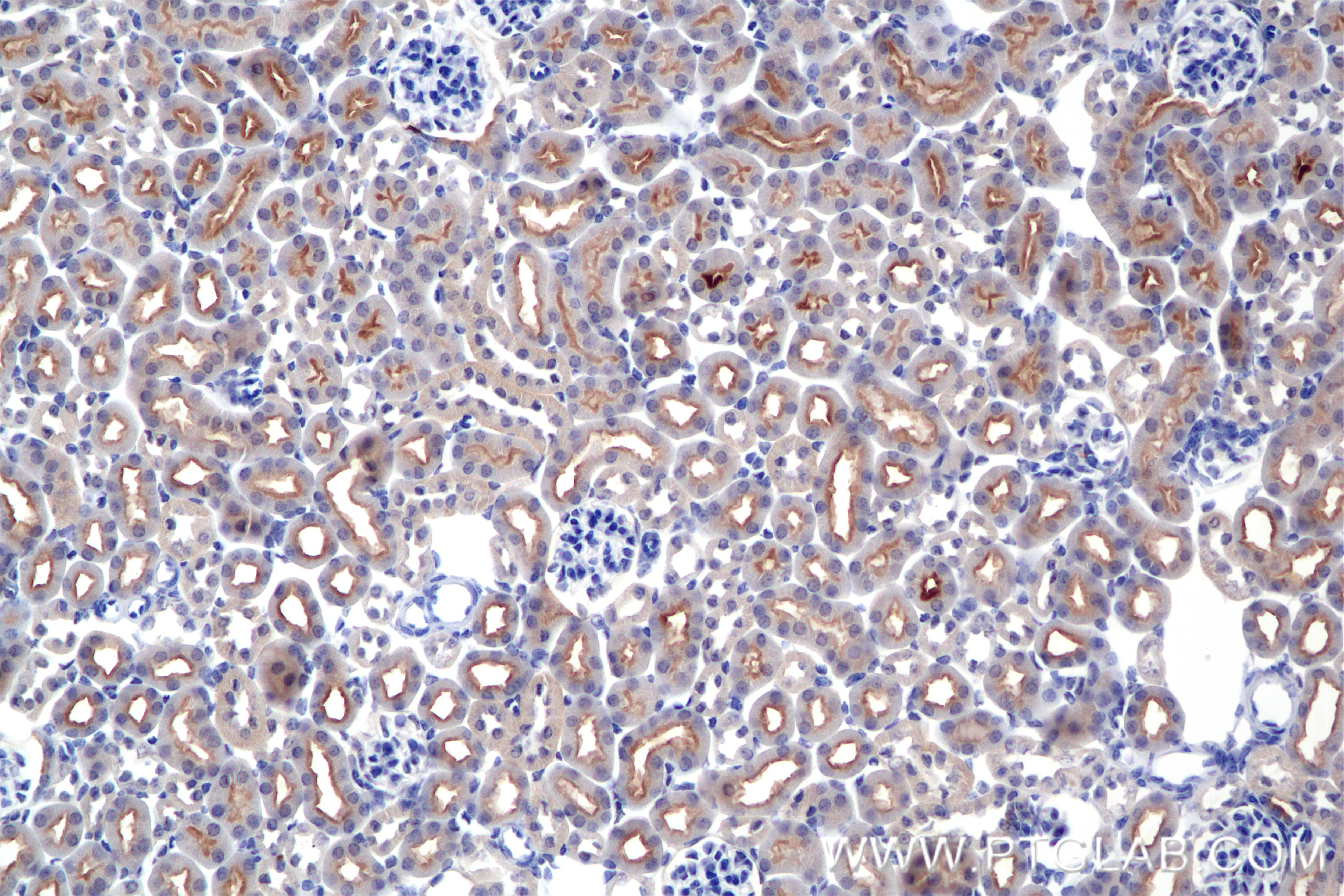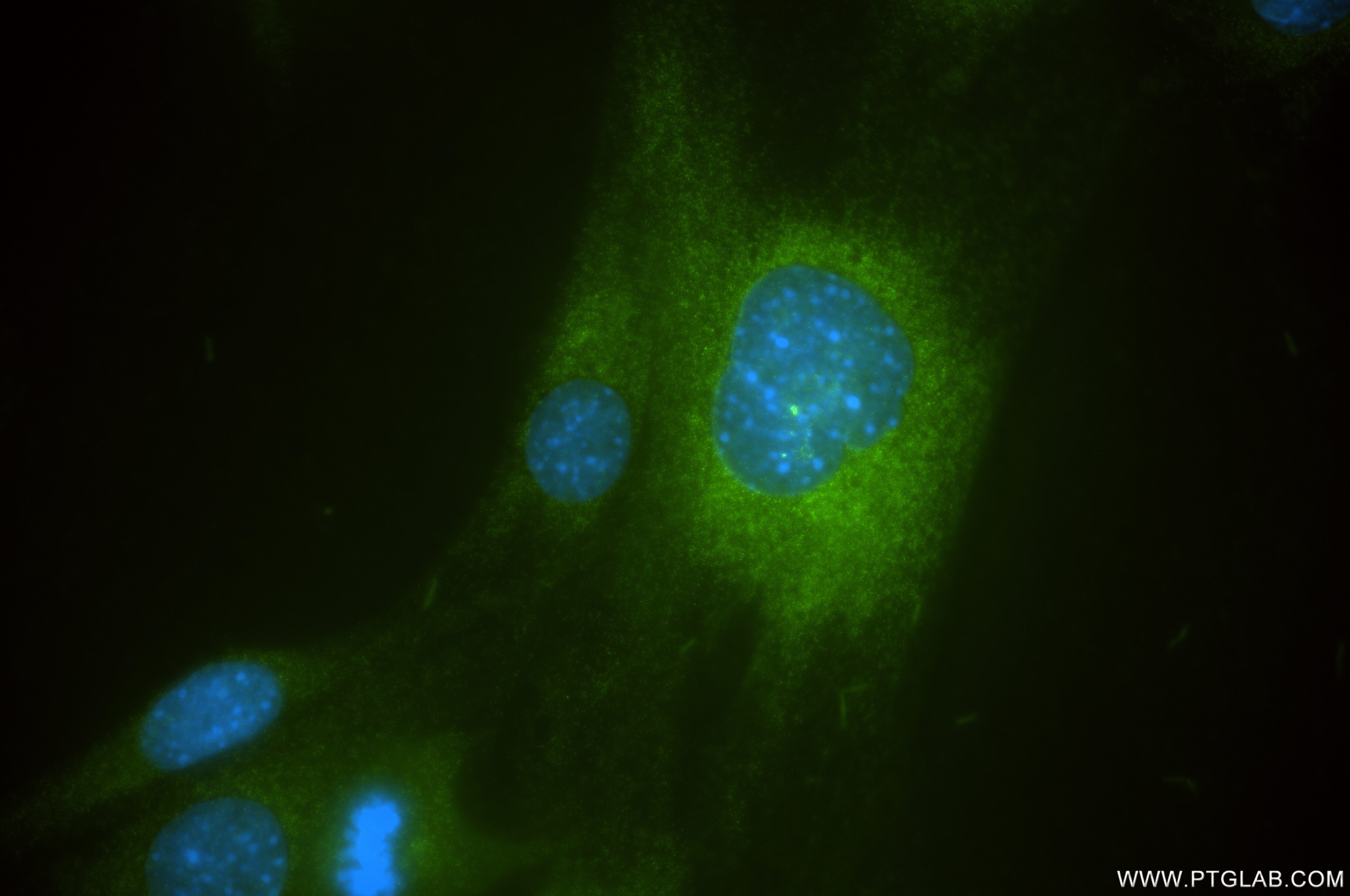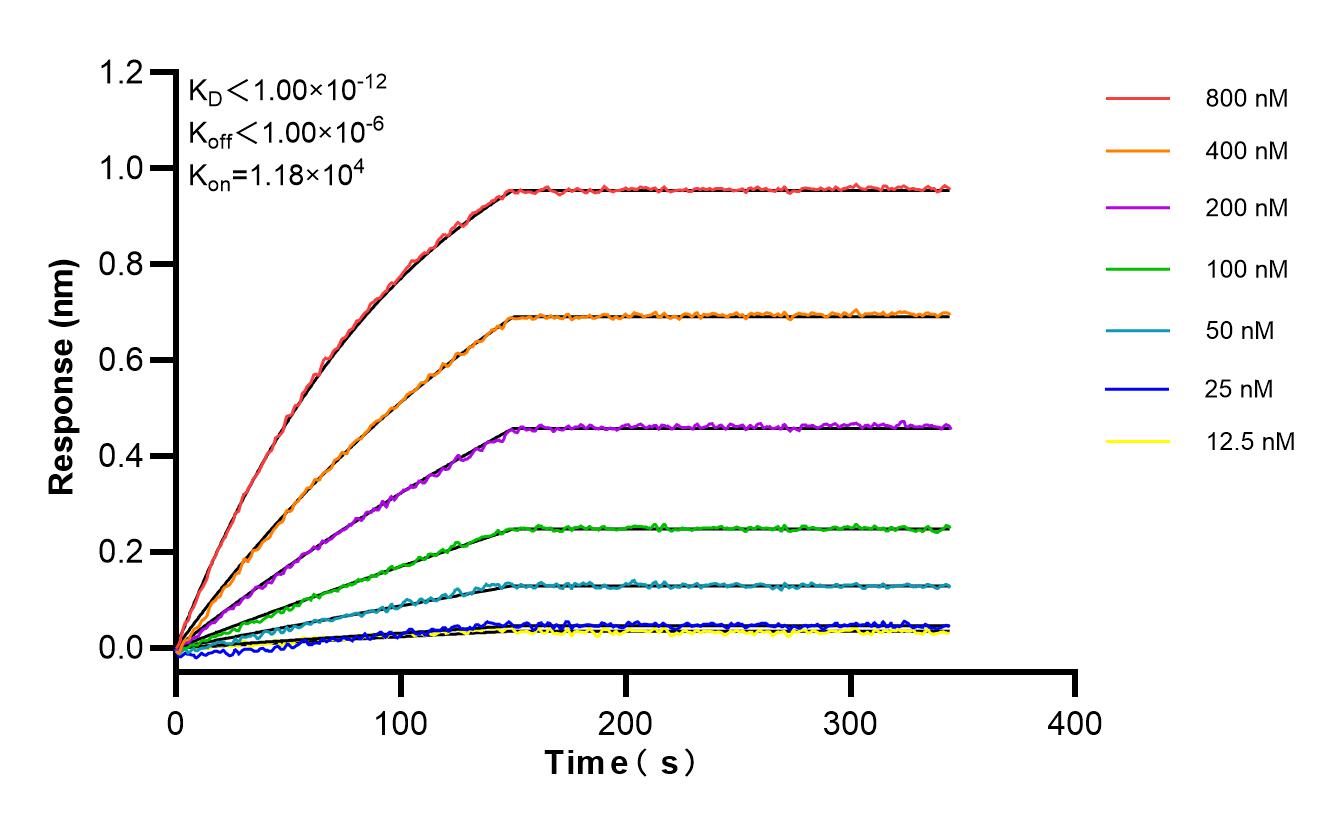Anticorps Recombinant de lapin anti-TIMP1
TIMP1 Recombinant Antibody for WB, IHC, IF/ICC, Indirect ELISA
Hôte / Isotype
Lapin / IgG
Réactivité testée
souris
Applications
WB, IHC, IF/ICC, Indirect ELISA
Conjugaison
Non conjugué
CloneNo.
243010H8
N° de cat : 85959-1-PBS
Synonymes
Galerie de données de validation
Informations sur le produit
85959-1-PBS cible TIMP1 dans les applications de WB, IHC, IF/ICC, Indirect ELISA et montre une réactivité avec des échantillons souris
| Réactivité | souris |
| Hôte / Isotype | Lapin / IgG |
| Clonalité | Recombinant |
| Type | Anticorps |
| Immunogène | TIMP1 Protéine recombinante Eg0630 |
| Nom complet | tissue inhibitor of metalloproteinase 1 |
| Masse moléculaire calculée | 23KD |
| Poids moléculaire observé | 20-23 kDa |
| Numéro d’acquisition GenBank | NM_001044384.1 |
| Symbole du gène | Timp1 |
| Identification du gène (NCBI) | 21857 |
| Conjugaison | Non conjugué |
| Forme | Liquide |
| Méthode de purification | Purification par protéine A |
| Tampon de stockage | PBS only |
| Conditions de stockage | Store at -80°C. 20ul contiennent 0,1% de BSA. |
Informations générales
TIMP1 is a member of the family of matrix metalloproteinase inhibitors, which contains four members (TIMP1, TIMP2, TIMP3, and TIMP4). Tissue inhibitors of metalloproteinases (TIMPs) are multifaceted molecules that exhibit properties beyond their classical proteinase inhibitory function. TIMP1 has several MMP-independent functions such as modulation of angiogenesis, promotion of cell proliferation, and inhibition of apoptosis. TIMP1 plays important role in cell cycle regulation and cancer progression. Recently, clinical studies have shown that the aberrant expression of TIMP1 is associated with an unfavorable prognosis in a series of tumors, such as gastric cancer, papillary thyroid carcinoma, cutaneous melanoma and breast cancer. In pregnancy, TIMP1 plays a regulatory role in the process of implantation, particularly the cytotrophoblast invasion of the uterine endometrium. In pregnancy, TIMP1 plays a regulatory role in the process of implantation, particularly the cytotrophoblast invasion of the uterine endometrium.
